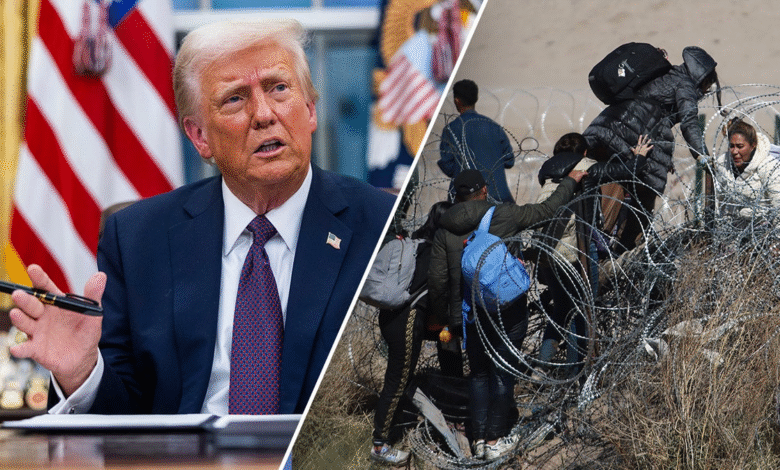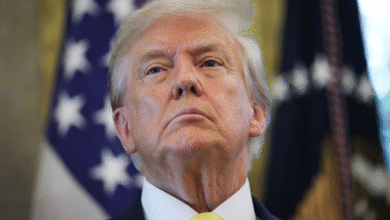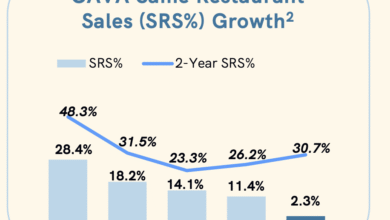Trump Birthright Citizenship Ruling: Supreme Court Decision Explained

The recent Trump Birthright Citizenship Ruling, delivered by the Supreme Court, marks a pivotal moment in the ongoing debate over citizenship rights in the United States. By limiting the authority of federal judges to issue universal injunctions that block executive orders, this ruling empowers the Trump administration and permits the controversial initiative to proceed amidst ongoing legal scrutiny. While the court did not rule on the constitutionality of Trump’s order to terminate birthright citizenship, the 6-3 decision symbolizes a significant win for the administration. Critics argue this could signify dangerous judicial overreach, raising concerns about the separation of powers and the potential implications for future governance. As the ruling sends shockwaves through the legal landscape, it underscores the contentious intersection of immigration policy, executive authority, and judicial power.
The recent ruling from the highest court regarding President Trump’s policies on citizenship rights brings to light complex legal battles surrounding birthright status in America. This decision, which limits the ability of judges to suspend executive actions, is particularly significant for the Trump administration, known for its robust use of executive powers. As the Supreme Court navigates the intricacies of judicial authority versus executive orders, significant questions linger about the future of citizenship laws in the U.S. Advocates on both sides of the aisle have voiced strong opinions, presenting this as a critical junction in the interaction between governmental branches. Overall, this ruling not only impacts current immigration policy but also sets a precedent for future executive actions.
The Impact of the Supreme Court Ruling on Executive Power
The recent Supreme Court ruling has profoundly influenced the balance of power between the executive and judicial branches in the United States. By limiting the ability of federal judges to issue universal injunctions, the court has effectively bolstered the Trump administration’s stance on executive orders. This decision is seen as a landmark moment that could expedite the enforcement of controversial policies, including Trump’s executive order regarding birthright citizenship. Advocates for a strong executive branch argue that the ruling facilitates a more direct approach to governance, allowing the president to implement his agenda without the prolonged delays often caused by judicial interventions.
Conversely, critics of the ruling express concerns over its implications for democracy and the rule of law. They argue that by granting the Executive Branch more leeway, the court risks enabling potential overreach and undermining the checks and balances that are fundamental to the American legal system. The dissenting opinions highlighted apprehensions about how this ruling might set a precedent for future administrations to bypass judicial scrutiny, thus elevating fears of an unchecked executive that could wield excessive power over critical issues such as citizenship and immigration.
Understanding Birthright Citizenship and Its Controversies
Birthright citizenship has been a contentious issue in American society, reflecting deeper debates over immigration and national identity. Established by the 14th Amendment, this principle grants citizenship to anyone born on U.S. soil, regardless of their parents’ immigration status. Advocates argue that this foundation is crucial for ensuring civil rights and inclusivity in a diverse nation. However, the Trump administration has sought to challenge this norm with its executive order aimed at terminating birthright citizenship, leading to significant legal battles that have now reached the Supreme Court.
The ruling to limit universal injunctions against such executive orders inevitably shifts the legislative landscape regarding citizenship. As the Supreme Court refrained from declaring the constitutionality of Trump’s order, it leaves many questions unanswered, particularly concerning future judicial interpretations of the 14th Amendment. This ambiguity not only fuels ongoing debates but also complicates the fundamental understanding of citizenship in the U.S., leaving many to wonder what the future holds for those born in America and the legal rights they are afforded.
Judicial Overreach and the Role of Federal Courts
The concept of judicial overreach has been at the forefront of the legal debate surrounding the Trump administration’s executive actions. Critics of the judiciary’s previous approach argue that federal courts sometimes overstep their boundaries, effectively inserting themselves into policy matters best left to the executive and legislative branches. The recent Supreme Court ruling reflects this philosophy by reinforcing the idea that federal judges should exercise caution when issuing broad injunctions that can stifle presidential authority, particularly in cases involving sensitive and sweeping national policies like citizenship.
This perspective is firmly supported by justices who argue that the judiciary should focus on resolving specific cases and controversies rather than engaging in expansive oversight of executive actions. Justice Amy Coney Barrett’s majority opinion stresses the necessity for federal courts to operate within the constraints of their constitutional role, allowing the executive to proceed with its agenda while the legality of its actions is still under scrutiny. However, this leaves open discussions about the fundamental rights at stake and how far the courts should go in protecting citizens from potential governmental overreach.
Implications for Future Executive Actions
The Supreme Court’s ruling sets a precedent for how future executive actions may be challenged and adjudicated. If federal judges are now less empowered to issue universal injunctions, presidents might feel emboldened to pursue their agendas without fear of immediate judicial blockage. This can lead to a landscape where executive orders could more readily influence significant policy areas, impacting everything from immigration to healthcare. For example, should another administration decide to implement sweeping reforms, they could do so with diminished concern about immediate legal repercussions from federal courts.
Moreover, this ruling raises questions about accountability in governance. With less judicial oversight, the executive may encounter fewer checks on its power, complicating the relationship between branches of government. Such a scenario could prompt future administrations to push the boundaries of executive power, as the Trump administration has done. The long-term effects of this decision will likely shape the nature of executive governance in the U.S. for years to come, raising the stakes for both political leaders and the citizens they govern.
Dissenting Voices in the Supreme Court
Dissenting opinions from Justices Sonia Sotomayor and Ketanji Brown Jackson provide crucial insight into the tensions surrounding the recent ruling. Justice Sotomayor’s dissent warns that the court’s decision paves the way for potential governmental overreach and labels it as a harmful precedent that could undermine essential rights. She articulated concerns that the ruling might lead to a neglect of judicial responsibility in safeguarding democratic principles and the very fabric of citizenship, reflecting a growing divide within the court regarding the limits of executive authority.
Justice Ketanji Brown Jackson echoed similar sentiments, underscoring the importance of constitutional adherence and the need for vigilant judicial oversight. She characterized the ruling as a significant shift away from the principles that currently uphold checks and balances within the government. Both dissenters highlight a growing alarm about how future executive actions could increasingly operate without sufficient checks from the judiciary, raising fundamental questions about the resilience of constitutional rights in the face of aggressive executive policy maneuvers.
Trump Administration’s Response to the Ruling
Following the Supreme Court’s ruling, the Trump administration touted the decision as a significant victory, reaffirming the president’s longstanding position on the need for robust executive authority. The administration’s spokespersons portrayed the ruling as a validation of the president’s efforts to overhaul immigration policies and eliminate what they view as an outdated and overly permissive approach to citizenship. Trump’s immediate response was one of triumph, framing the court’s decision as a necessary step in fulfilling campaign promises and reshaping national policy.
However, the administration’s reaction also indicates heightened tensions with opponents who argue that the ruling could lead to detrimental consequences for non-citizens and vulnerable populations. Critics of the Trump administration maintain that the essence of citizenship must be protected against unilateral executive actions that threaten established legal frameworks. The administration’s resolve to push forward with its agenda, despite dissenting opinions, shows a willingness to embrace controversy, further aligning its policy direction with a stricter interpretation of immigration laws.
Reactions from Civil Rights Organizations
The Supreme Court ruling has elicited strong reactions from civil rights organizations, which have condemned the decision as a dangerous encroachment on established citizenship rights. These groups emphasize that birthright citizenship is a fundamental principle that guarantees equality under the law, and they view any attempt to dismantle it as a direct attack on the civil rights of immigrants and their families. Many organizations have vowed to continue fighting against the Trump administration’s executive orders, signaling their commitment to uphold the principles of justice and equality for all.
In addition, civil rights advocates have expressed deep concern over the ruling’s potential ripple effects on future legal battles surrounding immigration and citizenship. They argue that the limited power of the judiciary to curb executive overreach could lead to systemic risks for marginalized populations. With heightened fears concerning administrative actions that threaten to undermine hard-won rights, these organizations are mobilizing to challenge future directives and advocate for robust protections that ensure fair treatment for all individuals, irrespective of their citizenship status.
The Future of Citizenship in America
As the legal landscape surrounding birthright citizenship and executive power continues to evolve, the future of citizenship in America remains uncertain. The Supreme Court’s decision could open the floodgates for further attempts to alter fundamental citizenship rights, fostering a climate of legal ambiguity about who qualifies as a citizen. Such developments may lead to increased challenges not only in courts but also within American society as citizens grapple with the implications of altering long-standing norms regarding citizenship.
The ongoing discourse around this issue underscores the importance of vigilant advocacy and informed public engagement in shaping national policy and legal interpretations. As various stakeholders weigh in on the implications of this ruling, it’s clear that the dialogue surrounding citizenship will play a critical role in defining America’s identity as a diverse and inclusive nation. How lawmakers, citizens, and the courts respond to these challenges will ultimately determine the future contours of citizenship and who is regarded as part of the American social fabric.
Frequently Asked Questions
What is the significance of the Trump Birthright Citizenship ruling by the Supreme Court?
The significance of the Trump Birthright Citizenship ruling lies in the Supreme Court’s 6-3 decision to limit federal judges from issuing universal injunctions, which had previously blocked the Trump administration from enforcing its executive order on birthright citizenship. This ruling allows the administration to pursue its controversial policy while ongoing legal challenges are resolved, highlighting the tension between executive orders and judicial authority.
How did the Supreme Court ruling affect Trump’s executive orders related to birthright citizenship?
The Supreme Court ruling affects Trump’s executive orders related to birthright citizenship by easing the restrictions on enforcement. The Court’s decision prevents lower courts from issuing broad injunctions against such executive orders, thereby enabling the Trump administration to advance its policies without immediate judicial intervention while legal disputes play out.
What arguments did the dissenting justices make against the Trump Birthright Citizenship ruling?
Dissenting justices, including Sonia Sotomayor and Ketanji Brown Jackson, argued that the Trump Birthright Citizenship ruling enables the Executive Branch to potentially violate the Constitution and undermines the judiciary’s role as a check on executive power. They condemned the ruling as a challenge to the rule of law and expressed concerns over judicial overreach being used to support the administration’s agenda.
What are the implications of the Supreme Court’s ruling on federal judges’ authority in Trump Birthright Citizenship cases?
The implications of the Supreme Court’s ruling on federal judges’ authority in Trump Birthright Citizenship cases include a significant reduction in judges’ power to issue universal injunctions. This decision restricts judges from halting executive actions broadly, instead allowing injunctions only to the extent necessary to resolve individual plaintiff claims, thereby strengthening the Trump administration’s ability to execute its policies.
Why did the Supreme Court not decide on the constitutionality of Trump’s birthright citizenship executive order?
The Supreme Court did not decide on the constitutionality of Trump’s birthright citizenship executive order because the case focused primarily on the validity of universal injunctions issued by lower courts. The Court’s ruling was confined to judicial authority and procedural issues rather than the substantive constitutional questions surrounding the birthright citizenship policy itself.
What does the Trump Birthright Citizenship ruling indicate about judicial attitudes towards executive power?
The Trump Birthright Citizenship ruling indicates a judicial attitude that may be more amenable to expanding executive power, particularly in the context of controversial policies. The majority opinion suggests a limitation on judicial oversight of executive actions, which could set a precedent for future cases involving executive orders and federal governance.
How did President Trump react to the Supreme Court ruling on birthright citizenship?
President Trump reacted to the Supreme Court ruling on birthright citizenship by celebrating it as a ‘GIANT WIN in the United States Supreme Court!’ His reaction underscores his view that the ruling validates his administration’s use of executive power, particularly in challenging and potentially overturning established citizenship rules.
| Key Points | Details |
|---|---|
| Supreme Court Ruling | The Supreme Court limited federal judges’ power to issue universal injunctions, facilitating Trump’s executive orders. |
| Case Outcome | The ruling allowed the Trump administration to implement its controversial citizenship directive while courts are still considering the legality of the order. |
| Court’s Decision | A 6-3 decision that did not ultimately decide on the constitutionality of the executive order termination of birthright citizenship. |
| Dissenting Opinions | Justice Sotomayor and Justice Jackson criticized the ruling as a potential threat to civil rights and the Constitution. |
| Implications | The ruling is seen as a victory for Trump and paves the way for broader executive power in altering citizenship laws. |
Summary
The recent Supreme Court ruling significantly impacts Trump Birthright Citizenship Ruling by limiting judges’ authority to issue broad injunctions that could block executive orders. While the court did not directly address the constitutionality of Trump’s directive to end birthright citizenship, it enables his administration to move forward with implementing these controversial policies. As a result, this ruling is considered a critical victory for Trump, reinforcing his narrative against judicial obstacles and emphasizing his expansive use of executive power.




